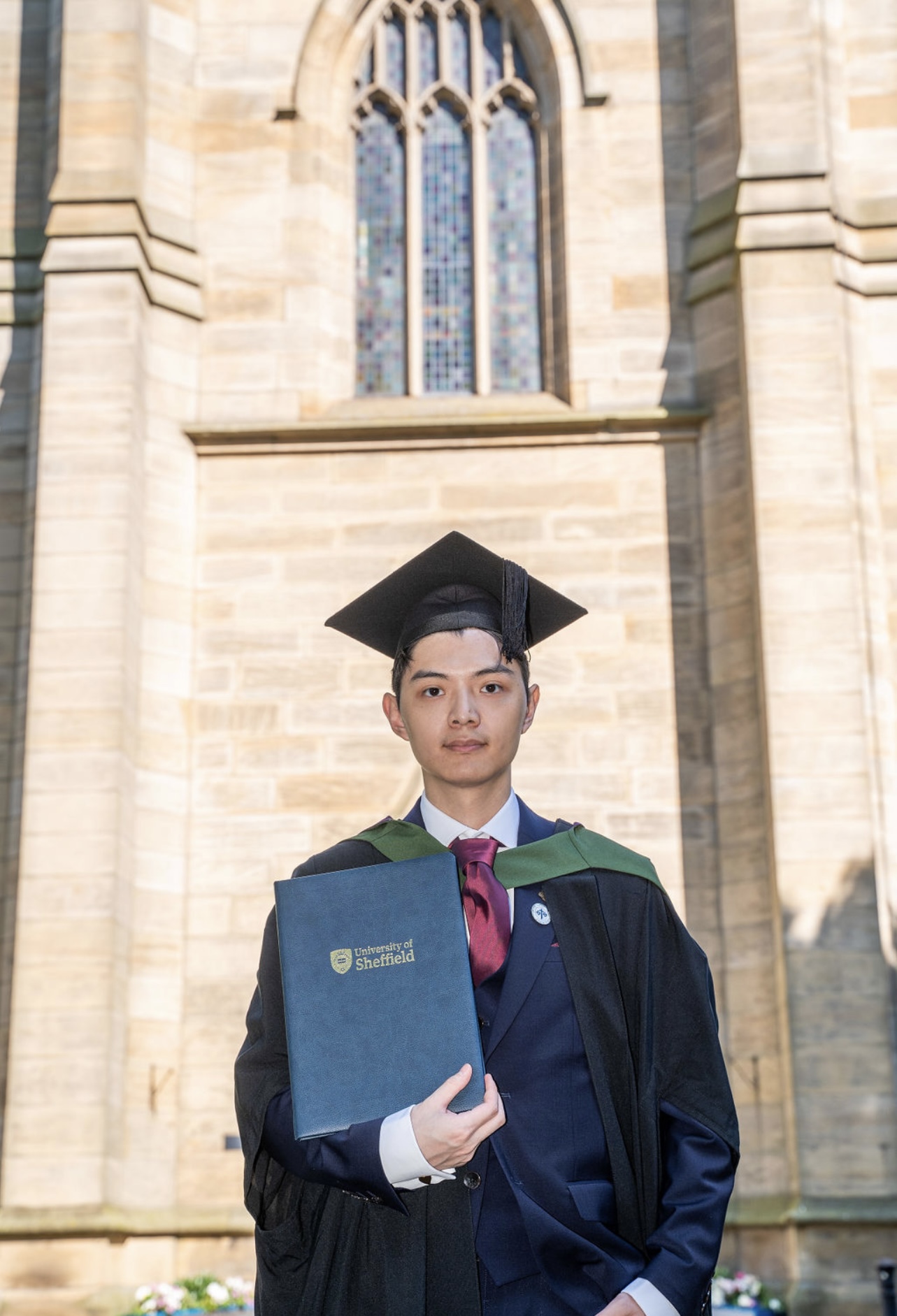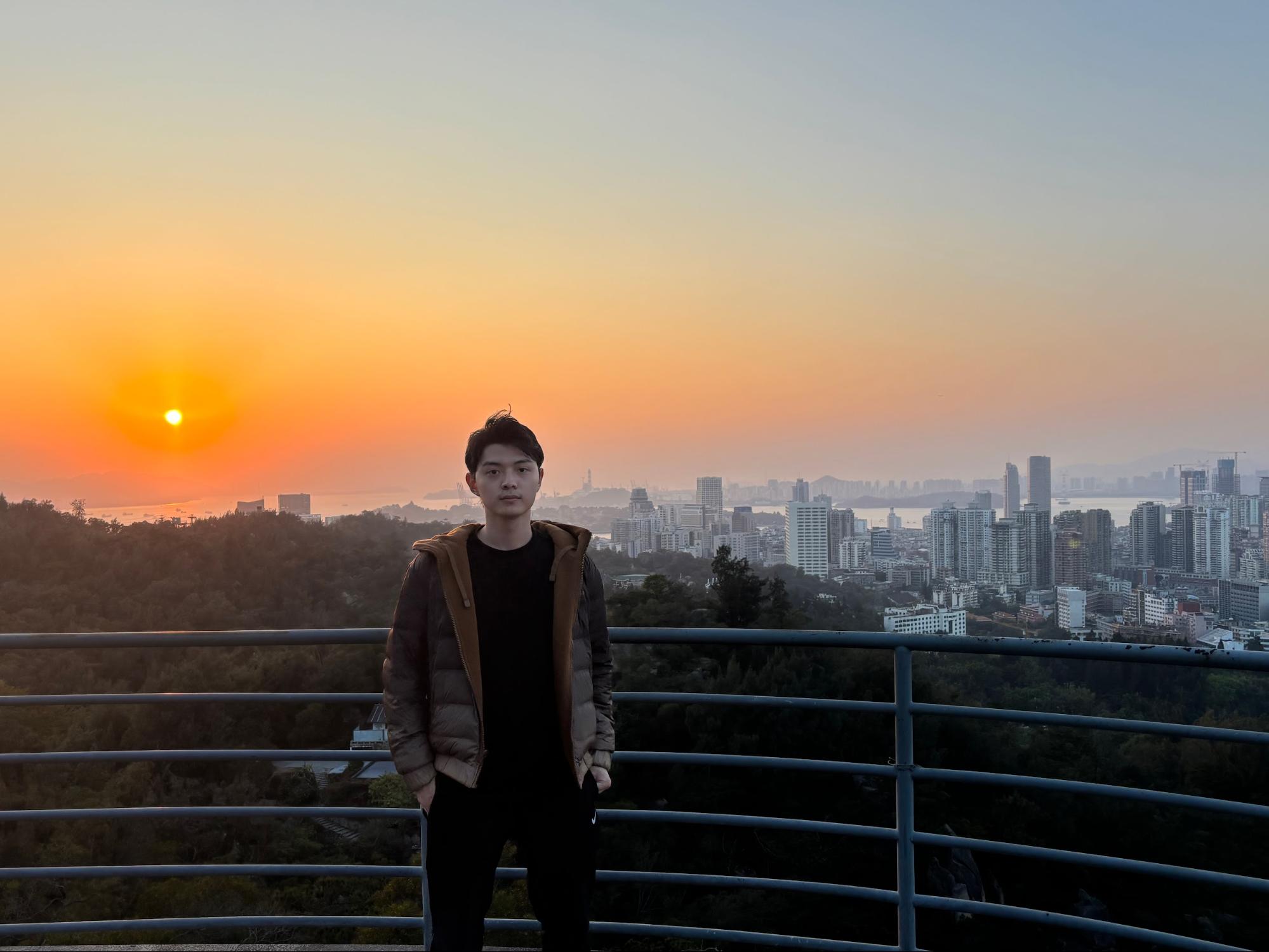
James has forged an impressive career in mechanical engineering. Currently pursuing a PhD in Engineering at the University of Sussex, he recently completed his Master of Engineering in Mechanical Engineering with a Year in Industry, successfully navigating the challenges posed by the pandemic. With a strong focus on research areas like laser diagnostics and carbon capture, James aspires to make meaningful contributions to the engineering field.

What motivated you to study mechanical engineering after graduating from TIS?
In 2018, I was uncertain about my path, initially aspiring to be an architect. However, I recognized that a degree in mechanical engineering would open doors in various STEM fields.
How did your time at TIS prepare you for your studies abroad?
TIS has prepared me to go to university in several areas. Through activities like Experience Week, I learned to communicate efficiently, even with people I was meeting for the first time. The strong foundation in English Language Arts, rooted in the Alberta curriculum, significantly enhanced my overall academic performance.
Can you share any memorable experiences or projects from your time at TIS that influenced your career path?
During my final year at TIS, I researched, designed and built a water-cooling computer for my passion project module. This project impressed teachers, as it showcased advanced technologies for 2019. Additionally, some of the best memories I have in TIS were leading the 2018-2019 High School Student Council, organizing the best Halloween and End-of-Year events of all time!
What was the most challenging aspect of the Master of Engineering program at The University of Sheffield?
The biggest challenge for me was to adapt to the rapid changes on covid rules while balancing my workload. We were among the last universities to enter lockdown in 2020, and the first engineering department in the UK to resume in-person exams. I was one of only two international students in my cohort to graduate with a Master of Engineering degree.
But don’t get me wrong. Despite these challenges, I enjoyed every minute I spent in Sheffield, as every experience contribute to my personal growth.

How did your year in industry impact your academic journey and future career aspirations?
Instead of a traditional mechanical engineering internship, I worked as a Product Data Analyst at Spirax Sarco UK. I contributed to a data migration project aligned with the company's NetZero strategy, managing and analyzing Product Lifecycle and Project Data. This experience expanded my perspective on career possibilities beyond mechanical design, prompting me to explore roles that combine research and project development.
What does receiving the scholarship for a PhD at the University of Sussex mean to you?
To be honest, PhD was never in my career roadmap, that is, until I finished my Master’s dissertation. I decided to apply for a PhD program in April, and received the offer in June. At Sheffield, I was never confident enough to present or prove my work. Now, with the PhD topic, it means that I have a new opportunity to excel in academia and work towards becoming a Chartered Engineer.
What research topics are you most excited to explore during your PhD studies?
This PhD represents a new direction for me. While my final year at Sheffield focused on solid mechanics, I’m excited to return to fluid studies and learn AI from the ground up. My research will cover:
Laser Diagnostics on Multiphase flows
Carbon Capture
Deep learning
How do you envision your PhD studies shaping your future career in engineering?
I think PhD ended up becoming the best career option in 2024 for me, especially with the growing number of engineering opportunities in nuclear fusion, carbon capture, and AI in the UK.
What advice would you give to current students at TIS who are considering a similar path in engineering?
My advice to all students is to pick the city and the degree you WANT rather than having the university pick you. Think about “what I enjoy” and compare against “what will be best for me.”
What skills or experiences do you believe are essential for success in the field of mechanical engineering?
Transferable skills will be the most important factor when you are looking for a job. If you want to stay in academia or the industry, you need to do well on your fundamental modules (Solid Mechanics, Fluid dynamics, tribology and coding if you are keen).

How do you balance academic demands with personal interests and activities?
This will be different for everyone, but I have learned to prioritize my personal interest. My approach is to focus on:
Group work
Personal Needs
Individual work
And never put personal needs last to avoid burn-out.
Did you have any teachers/staff at TIS who influenced you?
Every teacher I had at TIS left an impact on me, but I would like to acknowledge Mr Voykin, Ms Megan, Mrs Pickard, Ms Kim, Mr Brown, Ms Ip, Ms Chu, and Mr Schmidt.
What word or phrase would you use to describe a TIS alumni?
I believe I have used the best quote: Knowledge Knows No Bounds
